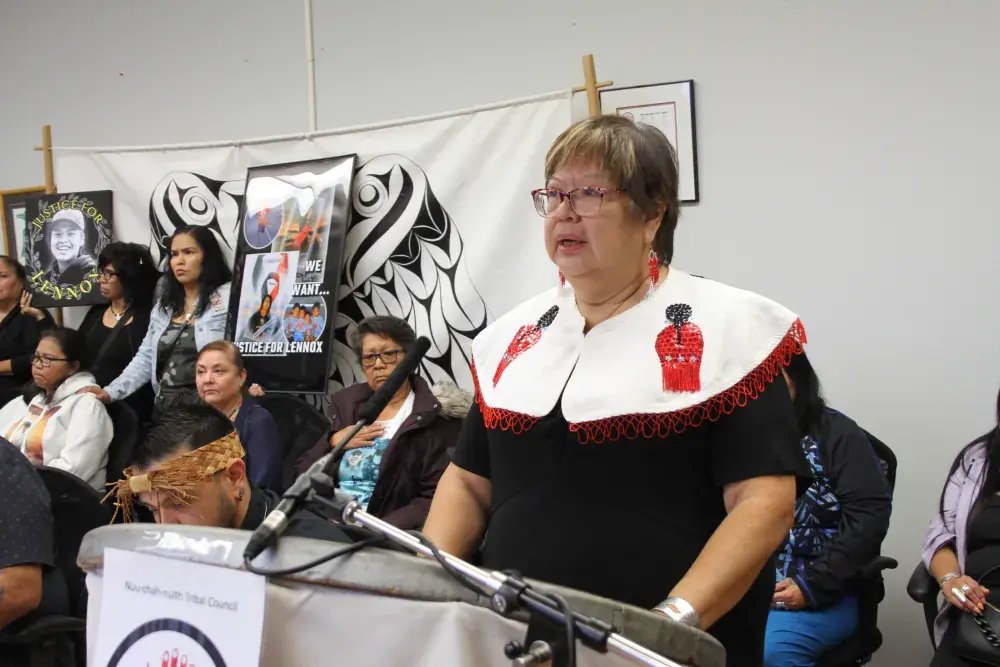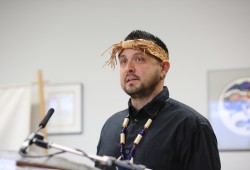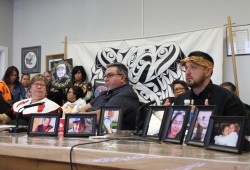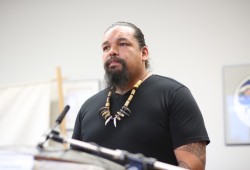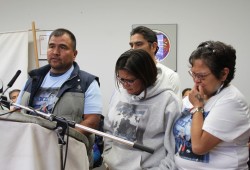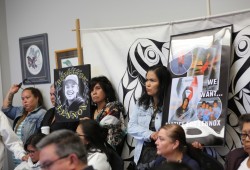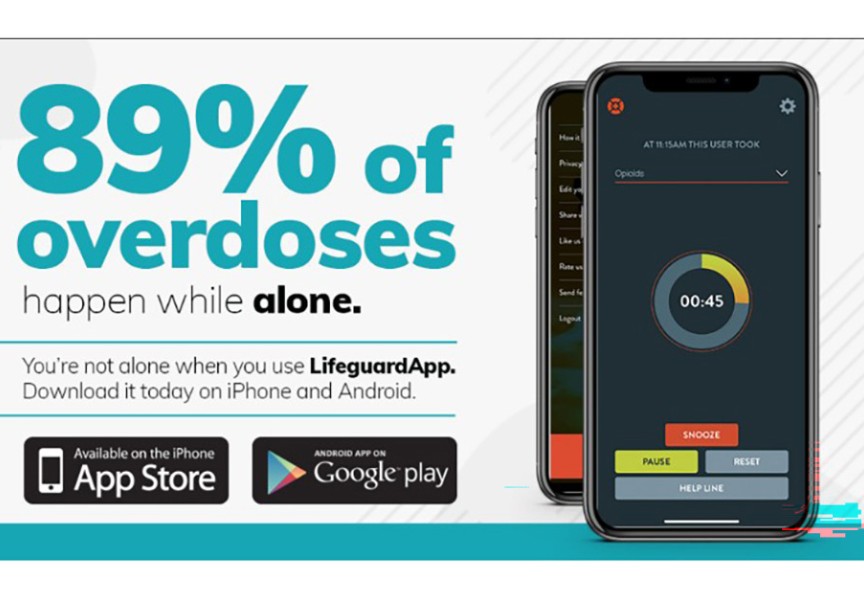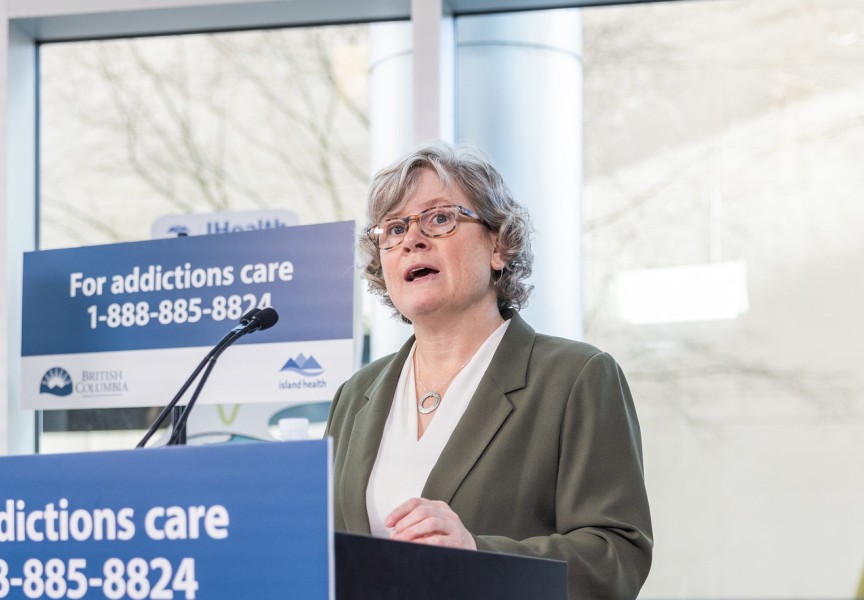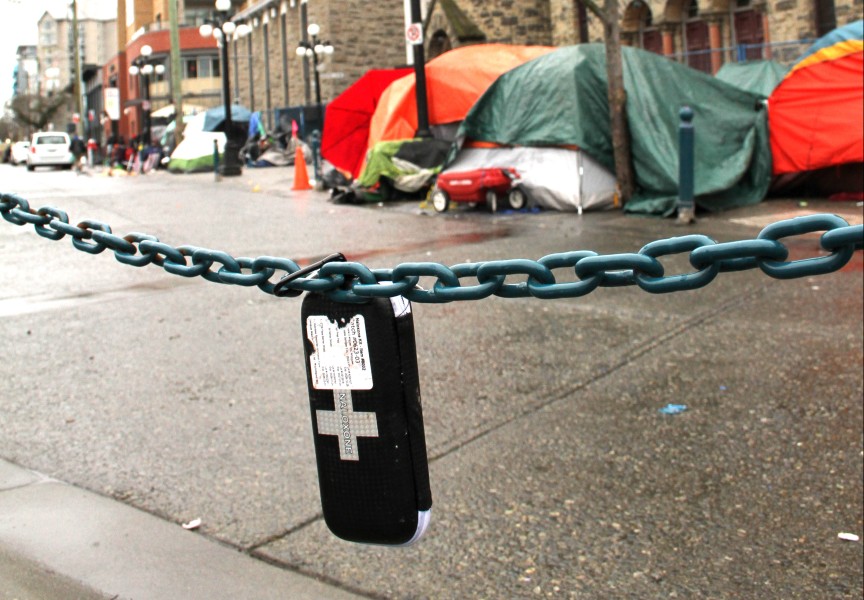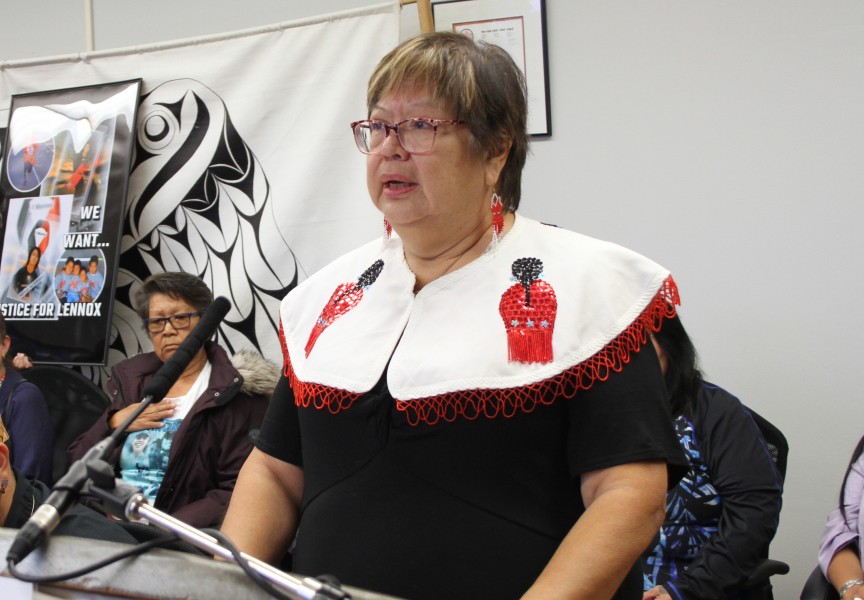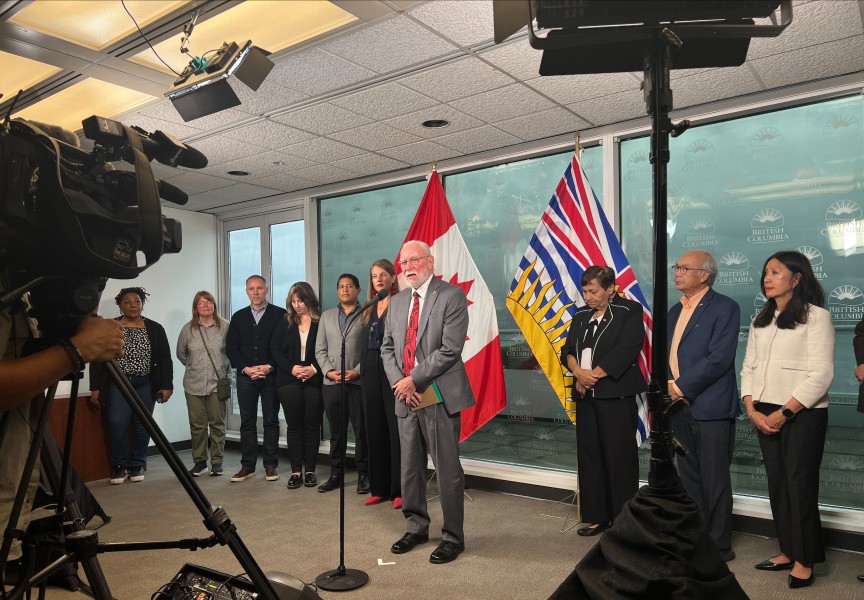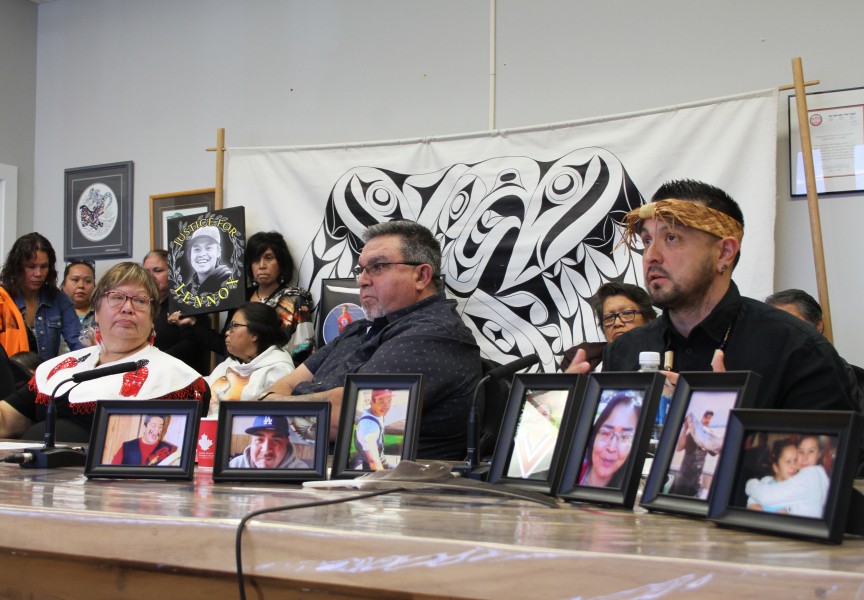Calling on governments to recognize a crisis that continues to have a devastating impact on families, the Nuu-chah-nulth Tribal Council has declared a state of emergency for how illicit drugs and mental health issues are affecting its communities.
The urgent message came Sept. 19, more than eight years since the Province of British Columbia declared a public health emergency for the opioid crisis, which continues to claim an average of six residents a day. The First Nations Health Authority has reported that Indigenous peoples are dying by overdose at a rate six times that of the rest of B.C., a phenomenon that has claimed a tragically prominent place in Nuu-chah-nulth communities.
“We are losing too many people, especially young people,” said NTC President Judith Sayers at a press conference.
The tribal council has a department dedicated the delivery of mental health services, as well as harm reduction measures to help in the safety of those who use illicit drugs. But Sayers stressed that more support is clearly needed, as losses continue while front-line staff are being overstressed with a crisis that shows little signs of abating.
“We don’t have enough capacity and dollars. Certainly, we provide services at the tribal council, but it’s not enough,” she said. “We are asking the governments, First Nations Health Authority, Vancouver Island Health Authority, to help us have dollars to be able to devise our own solutions, devise our own strategies on mental health, toxic drugs. We need to have this before we lose any more people.”
A display of seven pictures sat on the table before the leaders as they gave the announcement in Port Alberni, including the late nephew of NTC Vice-President Les Doiron, who was uncertain if he could look at the framed photograph as he spoke.
“Every day you hear the sirens in the community of Port Alberni,” said Doiron, thinking about his late nephew. “He died for a couple of reasons. One of them was he detoxed himself because there is no detox facility.”
Doiron noted that the lack of detox facilities in Port Alberni makes getting into one the equivalent of “winning the lotto.”
“Island Health has only two facilities, one in Nanaimo and one in Victoria, and the First Nations Health Authority has 10 in the entire province,” he said.
The NTC’s announcement follows another state of emergency made by the Ehattesaht First Nation early last year, as well as a previous call from the tribal council for “urgent and immediate action” towards the drug crisis in April 2022. That call from over two years ago stressed the need for the FNHA as well as the provincial and federal governments to work together to bring a “seven-day-a-week rapid access addiction clinic within Nuu-chah-nulth Hahoulthee, along with a fully-certified detox centre.”
Some progress became evident this summer when Island Health issued a request for proposals to bring six to eight “stabilization and recovery” beds to Port Alberni, “where clients’ basic needs are met while they continue to recover from substance use,” according to the RFP.
But this is not nearly enough to address the community’s immediate needs, said Tseshaht Chief Councillor Ken Watts.
“Have you ever heard the cry of a mother and a father who have lost their loved one?” asked Watts, holding back tears. “We’re asking British Columbians to ask their candidates running in this next provincial election, what are you going to do about it?”
The origins of the interconnected mental health and addictions issues are complex and historical, dating back to the original use of the building where the NTC press conference was held. It formerly served as Caldwell Hall, a student residence for the Alberni Indian Residential School that ran for most of a century on Tseshaht territory.
“I find it really ironic that we’re here in this building,” commented Watts. “We’re all suffering from the intergenerational trauma that happened right here, right in this building we’re standing in.”
“In Nuu-chah-nulth communities it’s the war on trauma, the war on dealing with the colonial past that we have had,” noted Sayers.
Ahousaht addresses ‘horrific’ tragedy
Also present at the press conference were several Ahousaht members. The First Nation has been under its own state of emergency since a tragic Labour Day weekend that resulted in two unexpected deaths in its Flores Island village.
Ahousaht Chief Councillor n̓aasʔałuk, John Rampanen, urged mainstream society to be aware of the struggles of his nation.
“We seek the support from the provincial and federal governments to act accordingly, to be responsive, to be accountable to the hardships that we’ve been experiencing,” he said.
Family members present held images of Lennox Williams, a 20-year-old Ahousaht resident who died during a stabbing incident over that weekend. An arrest and second-degree murder charges resulted from the tragedy, but a publication ban is in place on the identity of the accused and any court proceedings that are underway.
Curtis Dick spoke on behalf of the grieving family.
“He had a lot going for him,” said Dick. “It’s horrific, to say the least, that it happened in our community to a young man who was 20 years old.”
“The trial dates, the coroner’s report, the police report, there’s a lot to come,” he added. “We want to put out a call for justice for Lennox on behalf of the mother, the father, Agnes, for this young man who was tragically taken from our community at such a young age.”
After the recent losses Ahousaht opened a wellness centre that was recently built in its Flores Island community.
“We had an outpouring of cultural supports and clinical supports that came into community right away, so we opened the doors of the wellness centre as well as other community buildings,” said n̓aasʔałuk, noting that the new centre will open full-time in the coming days, but government support for operations has yet come through. “We have sought funding from the federal government and the provincial government to have the operational components in place. Unfortunately, it’s been very challenging to secure those funding dollars, so we’ve been very creative in how we’re going to initiate this ourselves with a land-based healing component.”
Enforcement shortcomings
During the conference Nuchatlaht Councillor Archie Little mentioned the prevalence of drug selling in Port Alberni, and how it appears that dealers are being able to continue operating. Shortcomings in the criminal justice system were highlighted last year, when the Port Alberni RCMP announced a conviction and 10-year sentence for Josef Brodek, who was found to possess enough lethal doses of illicit drugs for the entire population of Port Alberni. Due to court and lab delays, Brodek continued operating in the city for nearly four years since his first drug trafficking arrest.
“We need to find ways to stop the import of toxic and poison drugs,” said Sayers. “This is a multi-agency effort. We call on the RCMP to work with us.”

